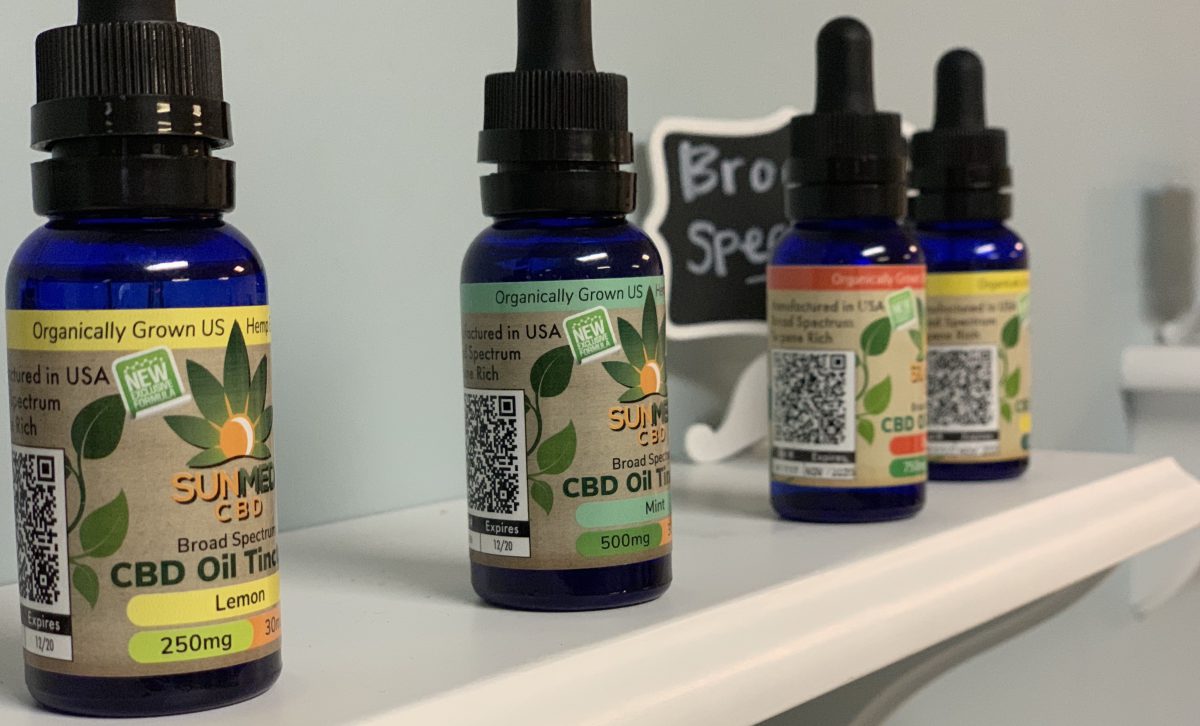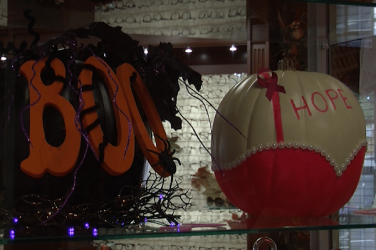Why It’s Newsworthy: As of December of 2018, CBD is now legal to sell in all 50 states. Consumers are turning to the drug to ease their symptoms and conditions.
On a rainy Tuesday in February, Igor Andrusceak stares through the window of his Your CBD Store franchise, where he sells cannabidiol, or CBD, a compound extracted from marijuana leaves that is not mind altering.
While there are no customers on this particular day, the fact that Andrusceak is already planning to open a second store gives an indication of how business is going.
The compound is commonly used to relieve anxiety, chronic pain, and epilepsy syndromes. Kim Kardashian West is even taking up the trend by having a CBD themed baby shower. Anecdotally, consumers across the country are singing CBD’s praises, and they are getting some legislative support.
In December 2018, Congress signed the Agriculture Improvement Act, also known as the Farm Bill. This bill removed cannabis products, including CBD from the Controlled Substances Act for the first time. As a result, CBD oil containing less than 0.1 percent of tetrahydrocannabinol, or THC, the mind-altering ingredient in marijuana, is legal in all fifty states of the U.S.
The new legalization of the drug has industry analysts predicting that by 2022 CBD oil will be a 22-billion-dollar industry, according to Brightfield Group, a CBD and cannabis research company. Researchers are still researching the compound’s effects on the human body, but people like Andrusceak say customers are seeing results.
“We’ve already had people come back in with tears in their eyes,” Andrusceak says about parents who have purchased CBD oil for their children with epilepsy. His store is one of 215 stores in a Florida-based franchise. In Georgia, it’s one of 27.
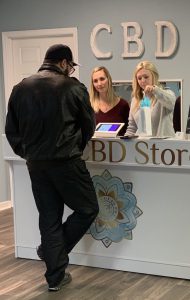
After consulting with an old business partner, Andrusceak saw first the opportunity to franchise as a business idea, but says he realized that his product had the power to actually help a wide variety of people.
Worth a Shot
Destiny Eaker, an animal science major at the University of Georgia comes from a family of migraine and headache sufferers.
As a freshman in high school, she went to a neurologist and was put on prescription medication to prevent her migraines. Almost instantly, she went into anaphylactic shock.
“I was like, ‘You know what, I think headaches are better than dying’,” says Eaker.
Too traumatized to try another prescription, Eaker would take up to six over-the-counter migraine medicine a day.
One day, a flyer for CBD oil for dogs came across her desk at the vet clinic she where she works. Her interest was piqued, and she began to do some of her own research.
“[My mother] was gung-ho about it,” says Eaker. Her fiancé was more hesitant and worried about random drug testing. Eaker assured him there would be no TCH to trigger a positive test.
However, not all CBD oil is manufactured alike and buyers should beware. Some suppliers’ products could result in a positive drug test. Others don’t even contain the amount of CBD they advertise.
For example, the FDA has issued several warning letters since 2015 to distributors like, Nutra Pure LLC and PotNetwork Holdings Inc, whose products have been found not to have CBD, or make false claims about shrinking cancer cells.
A report from WSB-TV in Atlanta, Georgia said a woman was disqualified from a job application because of positive drug test after using CBD oil for two weeks.
The Food and Drug Administration does not yet regulate the manufacturing of CBD oil. Only one treatment, Epidiolex containing apurified form of CBD has been approved by the FDA in 2018 for use in the treatment of certain seizure disorders.
“It can happen, and it also depends not just on not just the product, but some people metabolize CBD differently,” Consumerlab.com President Tod Cooperman told WSB-TV.
As far as safety, Eaker says that she’s felt no repercussions. She’s even seen added benefits to taking CBD.
Since taking one to two cubic centimeters of CBD oil daily, she found herself better focused on her course work and getting quality sleep at night.
“It’s worth a shot if you’ve got something going on,” says Eaker.
Not Just for Humans
On a weeknight in Emily Jenkins sits on the couch watching tv with her dog Baxter at her feet. Suddenly, her phone falls from the arm rest. Startled, her two-and-a-half-year-old dog, Baxter bolts into the other room.

“I don’t know what happened to him,” says Jenkins. “He freaks out.”
Jenkins suspects that Baxter was abused before she adopted him. She can’t walk towards him with anything in her hand and he was underweight at the shelter at 39 pounds as a full-grown dog.
Jenkins tried the drug Trazodone, used to treat anxiety conditions in dogs, prescribed from her vet to soothe Baxter but, she noticed a new-found fatigue and shift in his personality.
So she almost turned to Prozac, until she got an email.
“I was like, ‘Oh crap, let me look into it,’” recounts Jenkins, a Massachusetts native who admits she is “all about weed legalization.”
The only problem: veterinarians can’t prescribe or even recommend CBD. In Georgia, vets can’t even talk about it with patients, as both Eaker and Jenkins experienced at their vets.
In September 2018, California became the first state to pass a bill that explicitly allows vets to discuss and recommend CBD products for any animal with conditions that can be relieved by CBD.
After doing her own research, Jenkins started Baxter on the oil. “I just felt like his quality of life was suffering from just being afraid of everything,” says Jenkins.
Not All CBD Oil Is The Same
Trish and Frank Simmons first noticed something was off in their son, Tristan when he was two-years-old.
He’s mostly non-verbal, says Frank, but you can see that he wants to respond to you.
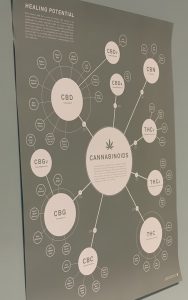
Diagnosed with autism at age three, Tristan’s parents searched to find a product that would soothe his tantrums but maintain his “flower child” personality.
Tristan’s speech therapist suggested CBD and recommended registering for a medical marijuana card, because Tristan needs more than the legal amount of THC.
CBD can come in two forms: as an isolate or full spectrum. CBD isolate is the purest form of CBD. It’s what is usually sold at stores like Andrusceak’s.
Full Spectrum CBD contains traces of THC as low as 0.3 percent.
Every day for the past two months, Trish takes the straw from a carton of Horizon organic chocolate milk and coats the inside of the straw with Tristan’s full spectrum CBD dose. The oil doesn’t taste good, says Trish. This way Tristan gets his daily dose in a yummy way.
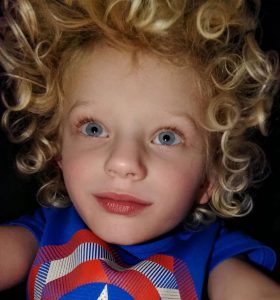
Overall, the National Center for Biotechnology Information, warns physicians and parents about giving their children CBD because of unknown effects it could have on humans.
“We wish there was more research,” says Simmons. For now, their family relies on the California based non-profit Whole Plant Access for Autism. Its founders, Jenni Mai and Rhonda Moeller, began the group after starting their own cannabis treatment journeys for their kids with autism.
Mai and Moeller, a biochemist, help other families navigate cannabis-based treatment through their website and Facebook group by linking them to credible research. With the help of doctors, they also provide education tools on where to start and dosing.
With their help, Trish and Frank have been able to do more for their son.
“If Tristan needs something out of a room, he’ll take my hand and lead me to it,” says Frank. “Before [CBD] it was screaming, crying, and throwing himself on the floor.”
Daniela Quintana is a Journalism major and Film Studies minor in Grady College of Journalism and Mass Communications at the University of Georgia.


